- Home
- About Us
- Our Service
- Post-Operative Instructions
- Facilities
- Gallery
- Testimonials
- Blog
- Contact Us

- Home
- About Us
- Our Service
- Post-Operative Instructions
- Facilities
- Gallery
- Testimonials
- Blog
- Contact Us
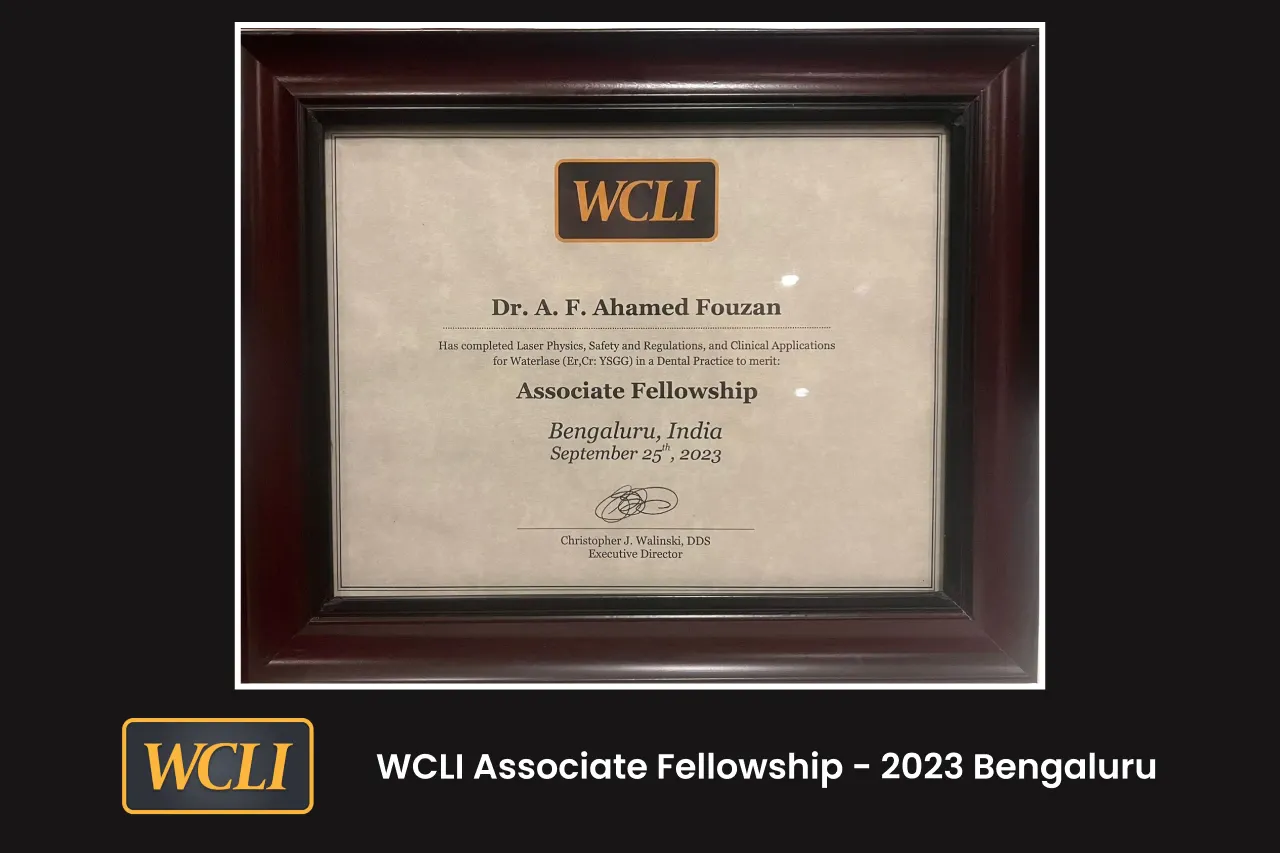
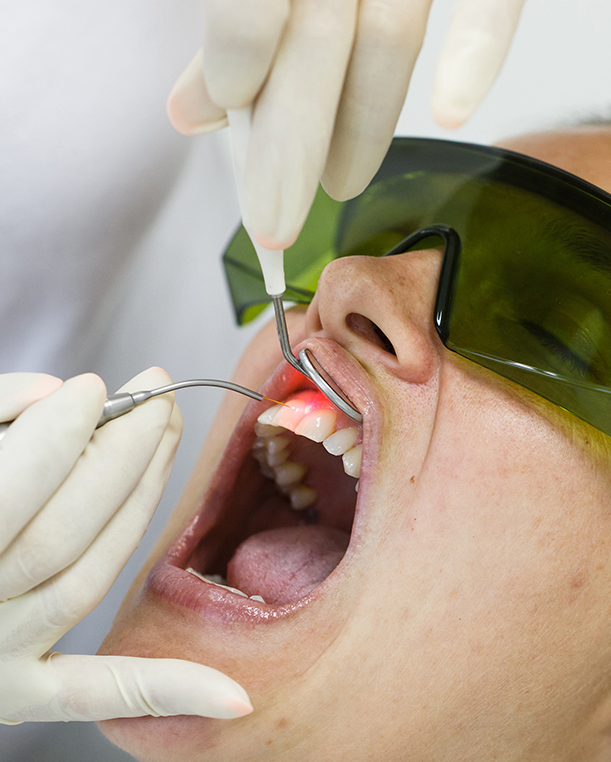
Laser dentistry is an effective and precise way of performing various dental procedures .Laser dentistry has the potential to improve various dental procedures, but all depends on the personnel skill of the dentist i.e. his ability and skill to control the exposure of laser on the gum as well as the teeth surface, and control over power output. Special care is required as the laser should not damage the surrounding tissues.
Minimally Invasive: Less pain, discomfort, and swelling with no drills or scalpels.
Precision and Accuracy: Precisely treats issues while protecting adjacent teeth.
Preserve tooth Structure: Protects your teeth structure for long-term dental health.
Faster Healing: Accelerated tissue regeneration, enables a quick patient recovery.
Safety Priority: Includes safety features for protection during procedures, ensuring patient and dental professional safety.
The dentists use the hydrophotonics technique which uses the combination of laser energy as well as spray of water that help in performing various procedures on gums, teeth and teeth bones more easily. The laser energy is absorbed by molecules of water present in the tooth tissues. The laser energy causes a explosion because the water molecules expand which in turn moves apart the tooth particle.
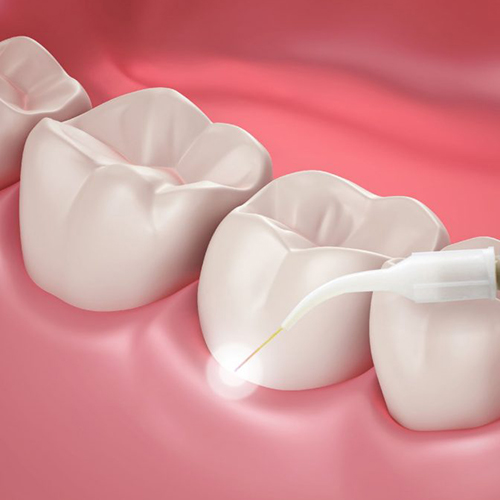
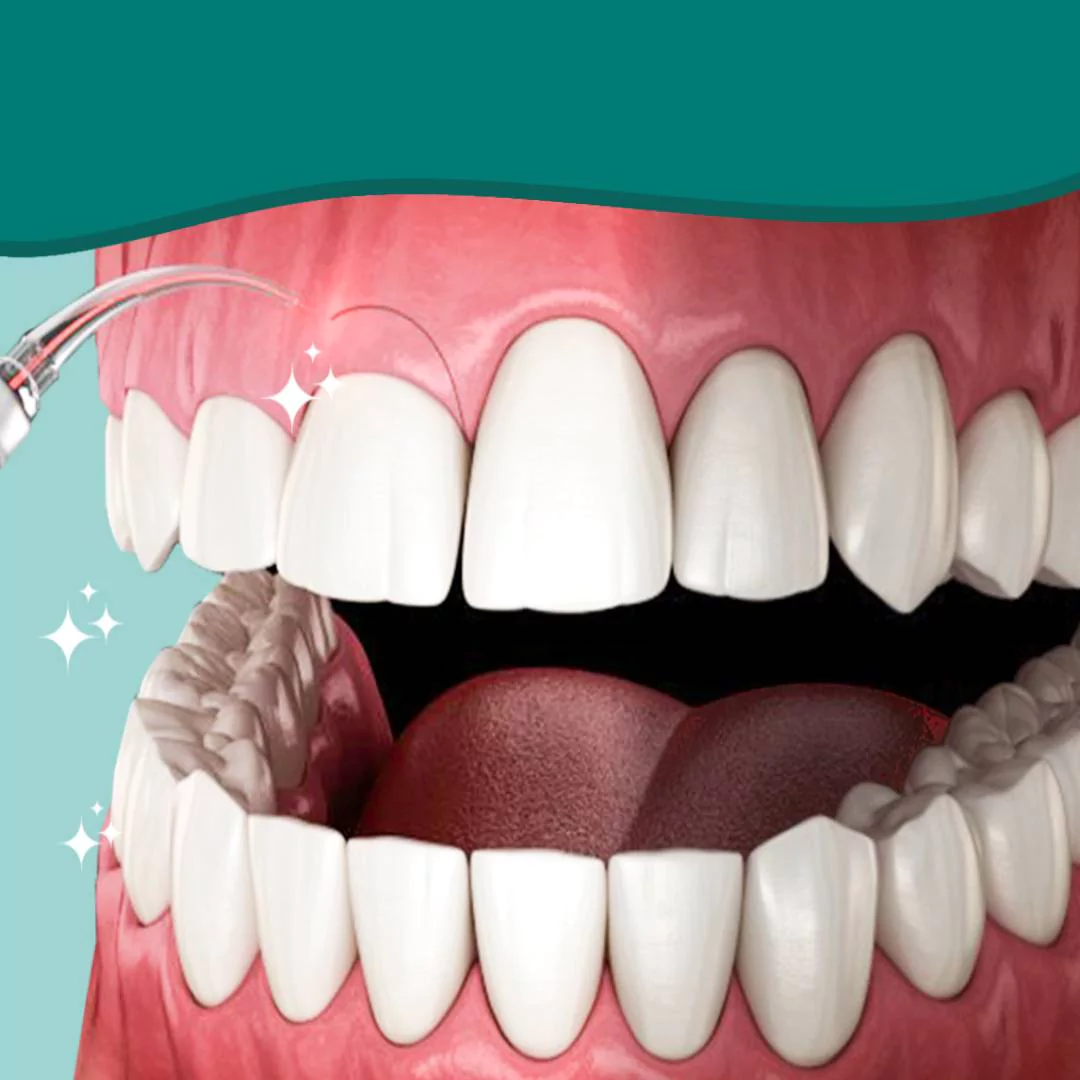
Laser gum depigmentation offers an effective solution for individuals looking to improve their smile. This innovative technique targets and removes unwanted gum pigmentation with precision and accuracy.
Unlike traditional methods, laser gum depigmentation is painless, often eliminating the need for anesthesia. The procedure is quick and convenient, usually completed in a single session, allowing you to return to your daily activities shortly after.
It significantly enhances the aesthetics of your smile by reducing or eliminating dark patches and uneven pigmentation. The results are long-lasting with proper oral care, providing a durable solution to gum discoloration.
Laser teeth whitening is a common cosmetic dental procedure that whitens and brightens teeth to improve their look. It is also known to as laser teeth bleaching. This cosmetic dentistry method is normally performed in a dental office by a qualified practitioner.
This technique removes stains and discolorations caused by things such as coffee, tea, tobacco, and aging, resulting in a substantially whiter grin.
Laser teeth whitening is well-known for its ability to produce quick and dramatic results, making it a popular choice for those seeking a brighter and more appealing smile
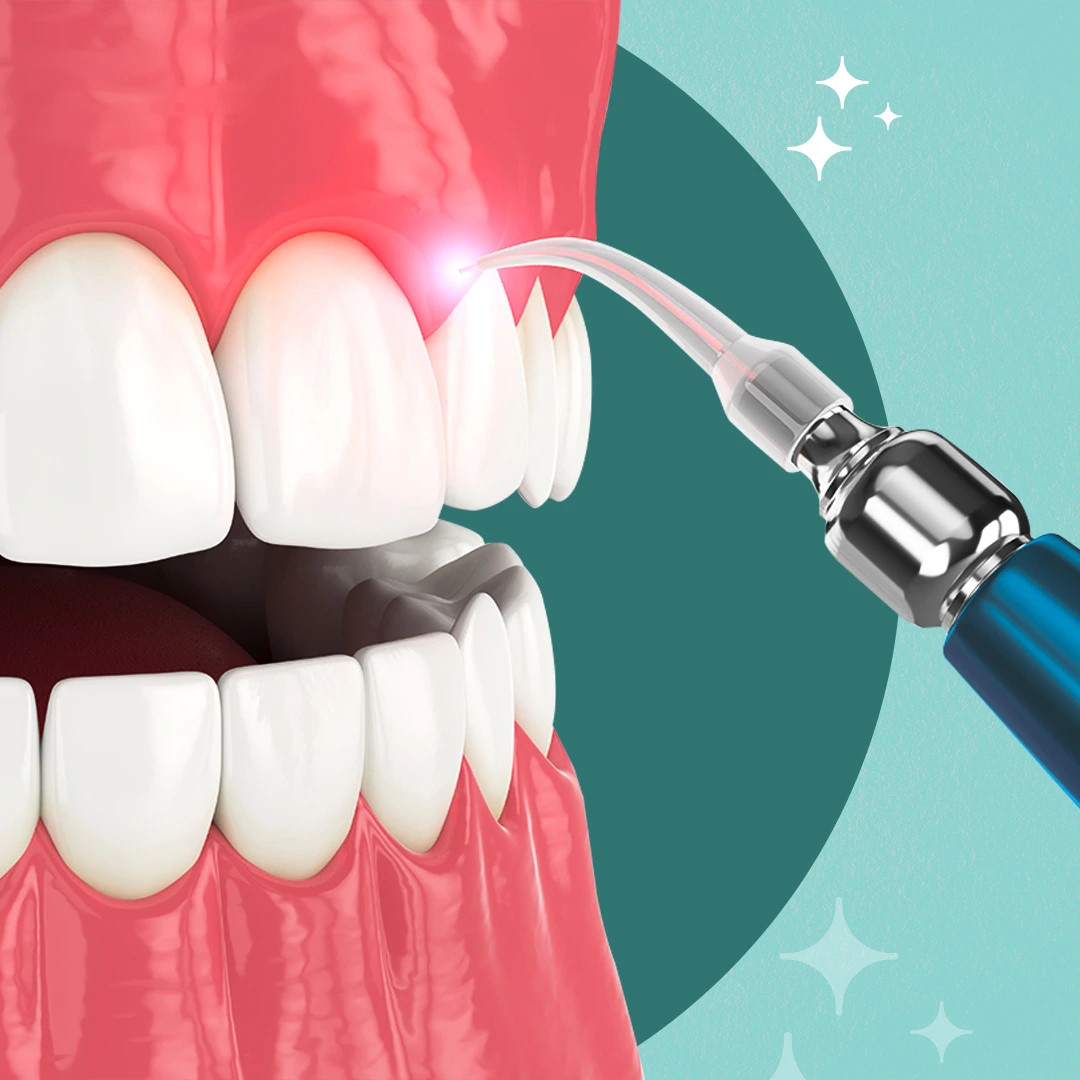
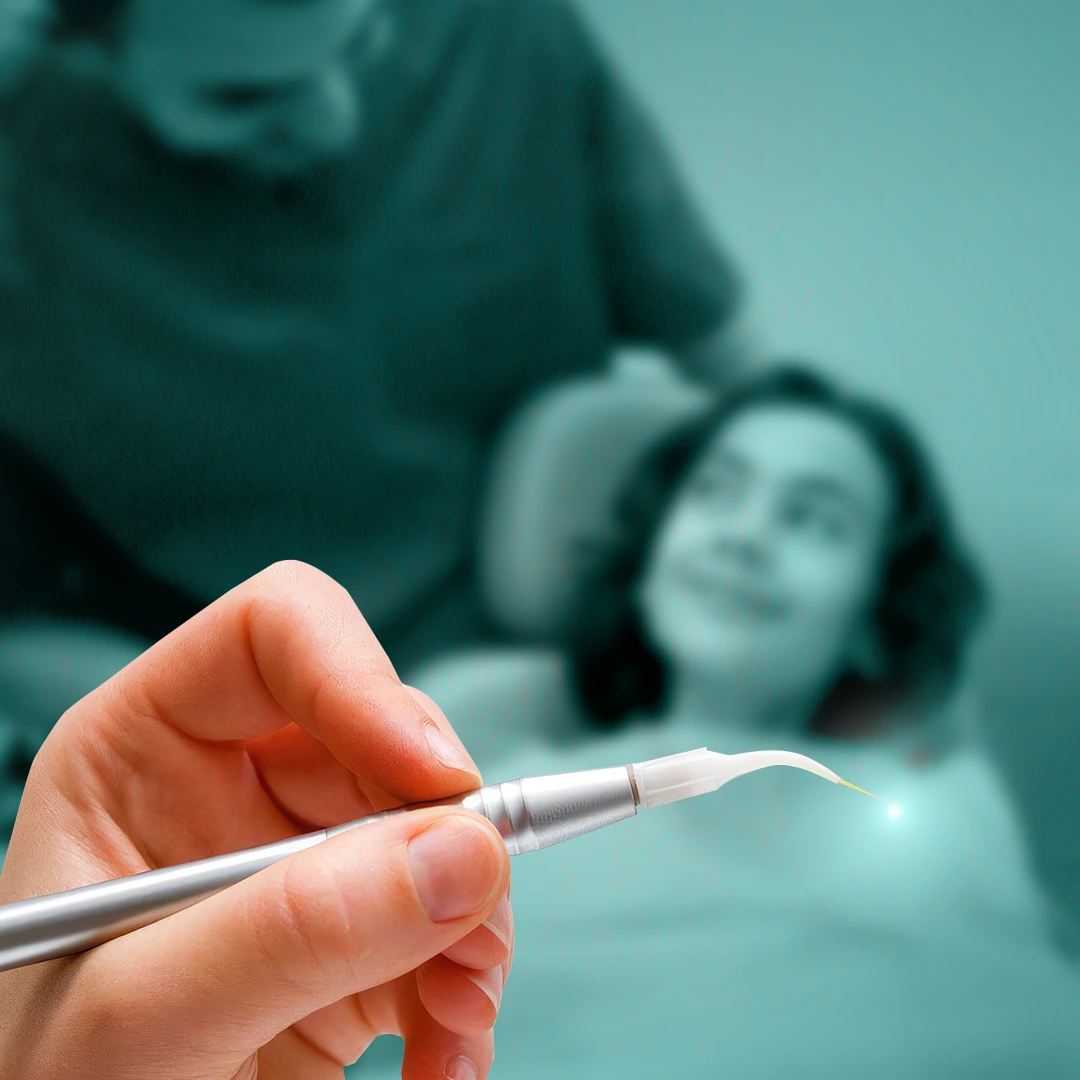
Laser tooth decay treatment, also known as laser dental caries therapy or laser cavity removal, is a modern dentistry technology that removes and treats tooth decay or cavities using a dental lasers.
Lasers can be utilized to remove the decaying section of the tooth instead of traditional techniques such as drilling and filling.
While laser dentistry has several advantages, such as reduced discomfort, noise, and the ability to preserve more of the natural tooth. It is important to note that, while laser treatment can be used for some elements of dental care, it may not completely replace traditional procedures, and its acceptability. is dependent on the specific case and the dentist's suggestion.
Laser crown lengthening is a dental functioning that adjusts the height of the gumline to expose more of the tooth's surface.
This method is often used for cosmetic or restorative purposes when a tooth is partially covered by excessive gum tissue or when extra space is needed for a dental replacement, such as a crown or veneer. During the process, a dental laser is utilized to precisely remove or remodel the gum tissue, revealing more of the tooth's structure.
In comparison to traditional procedures, laser crown lengthening has various advantages, including less bleeding, less discomfort, and faster healing times. It can assist improve a person's smile's aesthetics and give a more firm basis for dental restorations, thereby improving both the appearance and functionality of the teeth.
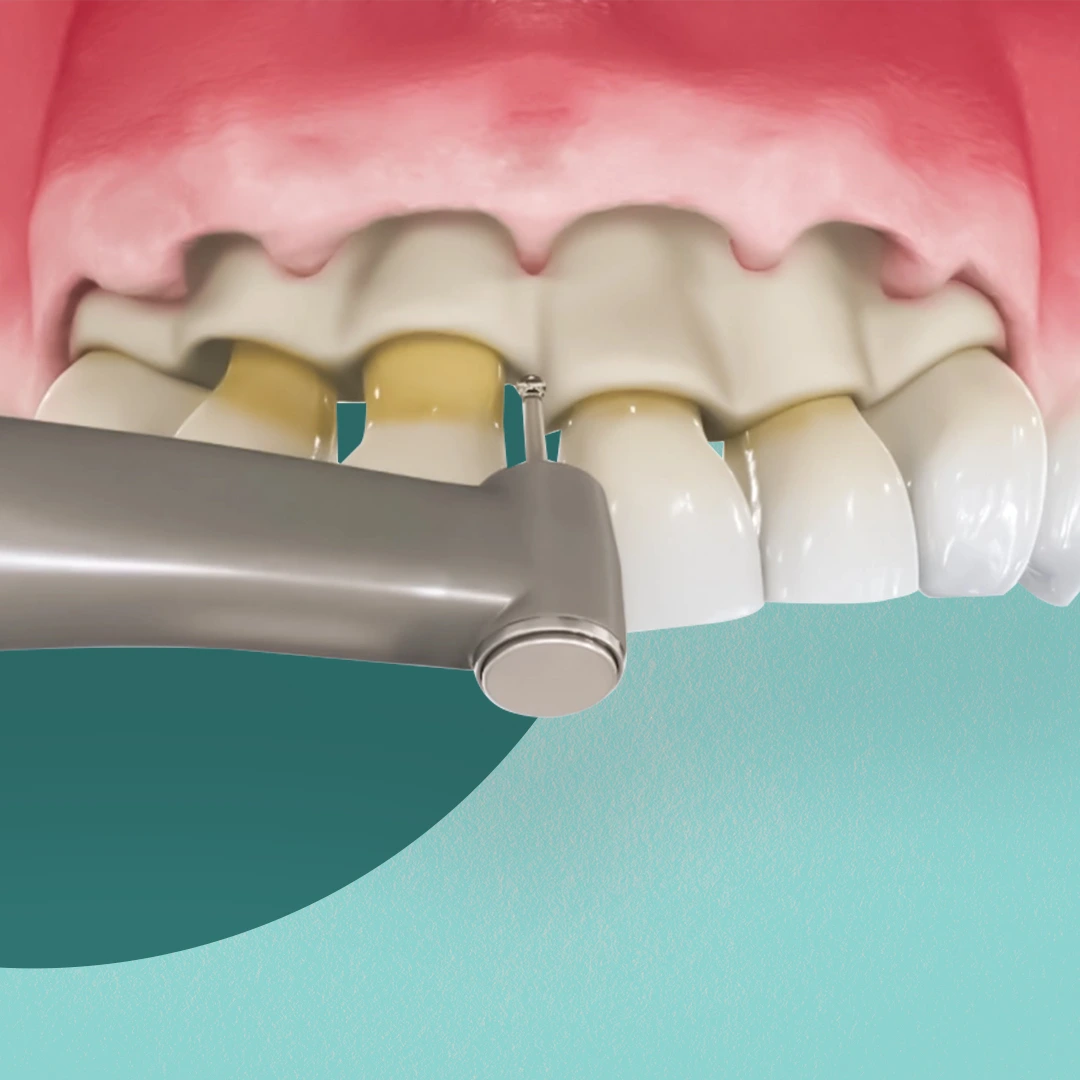
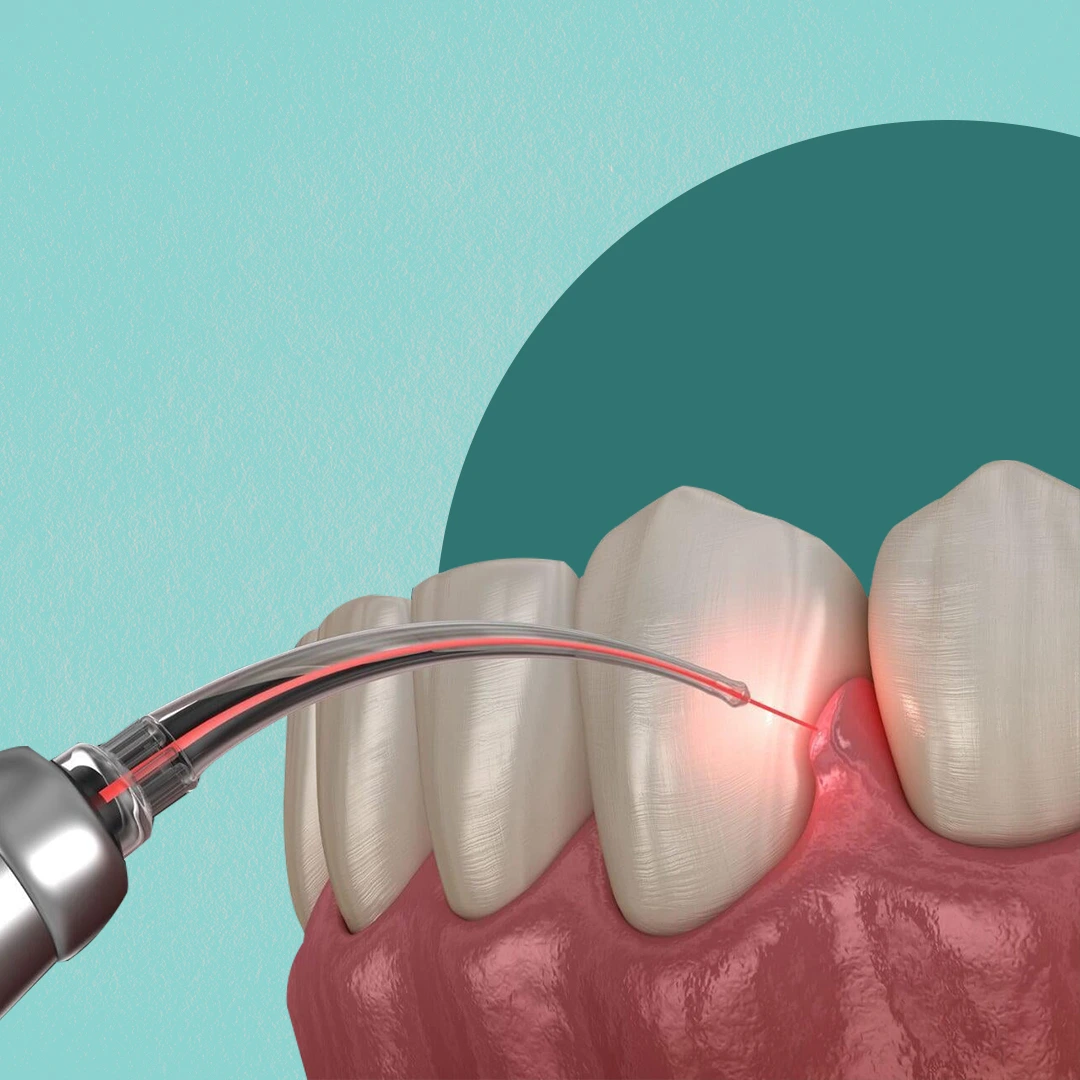
Tooth sensitivity arises when the protective enamel of the tooth wears away, exposing the underlying dentin and nerve endings. When the teeth are exposed to hot or cold temperatures or other stimuli, this can cause discomfort or suffering.
The affected areas are treated with laser radiation, which seals the small tubules in the dentin that are responsible for conveying feelings that cause sensitivity. This approach can assist to alleviate or eliminate the discomfort caused by tooth sensitivity.
Laser desensitization is noted for its accuracy and effectiveness in providing sensitivity relief, and it frequently requires fewer treatment sessions than traditional procedures such as desensitizing toothpaste or fluoride treatments. It's an excellent solution for people who have sensitive teeth and want long-term treatment.
Yes, laser dentistry helps to treat gum diseases by first targeting and then vaporizing the gum tissues. Laser dentistry is very much better than the traditional procedures that cut the tissues using scalpels. Laser is used to vaporize only diseased tissues which leave the tissues healthy and free of diseases.
Laser automatically forms clots/it seals the blood vessels as well the nerve ending. One can return back to work immediately after the treatment and there is no down time. Hence it is very convenient and comfortable for the patient as there is no recovery time.
Lasers reflect light with the help of a mirror hence it gets difficult /impossible to remove the silver filling i.e. amalgam filling as there are chances of fracture of mirror. The conventional drill removes the amalgam filling in first instance. Then laser is used to remove decay and the cavity that allows the placement of tooth color filling. Combination of conventional drill and laser is used for extensive works such as preparation of crown.
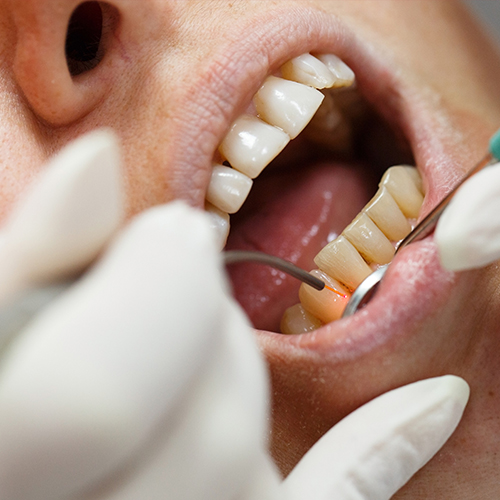
The cost factor depends on the personnel skill of the dentist i.e. how efficiently and skillfully the light energy is used, the location of the dental clinic as well as individual requirement. In some cases the laser therapy has proved to be much cheaper than gum surgeries. Some insurance companies also cover laser therapy, but this should be checked before going for the treatment.
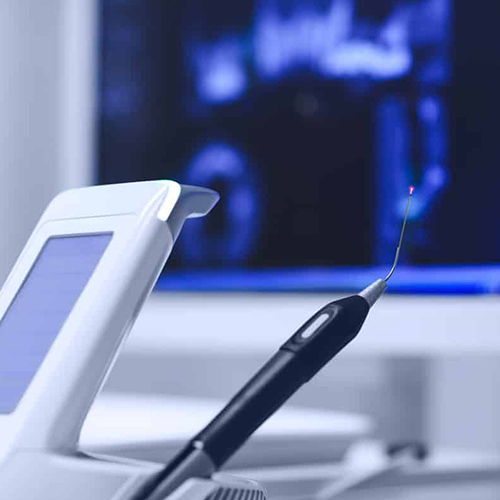
Laser dentistry is a fairly safe procedure. Trained dentists execute operations that are as safe as or safer than other types of dental care when they operate within the appropriate guidelines.
Lasers produce light as a form of energy. The energy is manipulated in order to carry out various processes. The laser can be used as a cutting tool or to remove tissue in specific circumstances. The laser helps strengthen the link between the tooth and the filling while healing a filling. It can serve as a catalyst for bleaching compounds in tooth whitening.
For a number of reasons, dental lasers are preferable over drills. When compared to a drill, a dental laser is more effective and quicker. The patient feels better, bacteria levels are lower, healthy tissue is less damaged, and anesthesia is rarely needed.
A range of dental treatments is performed using hard and soft tissue lasers. They can help in the removal of dental decay, reshaping of gums and teeth, removal of lesions, and the whitening of teeth.
Veneers are laminates made up of ceramic, porcelain, composite bonding materials. They ate very thin like a…
Straighten your teeth safely and exceptionally Orthodontic treatment deals with correcting teeth and jaw alignment by putting…
What is the meaning of maxillofacial? Maxillofacial means jaws and face, which combines with mouth becomes the…
What is cosmetic dentistry? Cosmetic dentistry, also known as Aesthetic dentistry, aims to elevate teeth appearance without…
Teeth Whitening is the most widely performed cosmetic dental procedure, as it lightens a tooth's natural color…
What is a smile makeover? Smile makeover is a part of cosmetic dentistry and varies from person…
Transform your disfigured tooth to its actual structure rapidly Dental crowns are defined as hollow false teeth…
Zenith Dentistry - Exquisite dental implants center in Sri Lanka Dental implants are small titanium screws inserted…
What are dental bridges & when are they used? Dental bridges are used in case of a…
What are dentures? Dentures are constructed by the dentist to replace the missing teeth. They are also…
What is teeth scaling and why is it required? Scaling is a treatment which cleans teeth by…
Virtually painless With Unmatched Precision Root Canal refers to a tooth's hollowed-out cavity where the pulp chamber…
What is laser dentistry? Laser dentistry is an effective and precise way of performing various dental procedures…
Pediatric dentistry (or) Kids dentistry deals with evaluating and treating the dental health of infants, children, and…
What do you mean by sedation? Sedation dentistry helps one to snooze virtually during the visits to…
How important is brushing? Brushing is very important as it keeps our teeth and gums healthy. It…
What is it? Invisalign treatment uses a series of virtually invisible, removable, and comfortable aligners that allow…
What is Laser teeth whitening? Laser teeth whitening is one of the cosmetic dental treatments available today.…
#55, Hospital Road, Dehiwala, Sri Lanka.